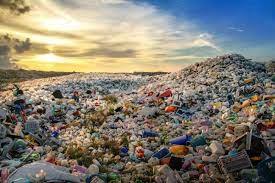
A research team at Northwestern University led by Dr. Ludmilla Aristilde, Associate Professor of Civil and Environmental Engineering, is investigating metabolic pathways of Comamonas testosteroni. This organism is incapable of metabolizing sugars but is able to degrade aromatic compounds found in plastics and plant waste, including lignin. The research team has applied sophisticated analytical techniques to  establish the metabolic pathways used by the organism to degrade terephthalate and hydroxy benzoate. Bacteria in the genus Comamonas break down the carbon ring of substrate compounds to a linear structure which is further degraded into short fragments in order to synthesize amino acids.
establish the metabolic pathways used by the organism to degrade terephthalate and hydroxy benzoate. Bacteria in the genus Comamonas break down the carbon ring of substrate compounds to a linear structure which is further degraded into short fragments in order to synthesize amino acids.
Studies in progress will determine the mechanisms that trigger the biosynthesis of polymers since Comamonas species have the potential to synthesize compounds that can serve as feedstock for plastic production, independent of petroleum hydrocarbons.
 Breakthrough studies such as those conducted by the Northwestern University team in the McCormick School of Engineering offer the potential to degrade plastics into useful compounds alleviating current methods of disposal (and mis-disposal) contributing to the decarbonization of our environment.
Breakthrough studies such as those conducted by the Northwestern University team in the McCormick School of Engineering offer the potential to degrade plastics into useful compounds alleviating current methods of disposal (and mis-disposal) contributing to the decarbonization of our environment.